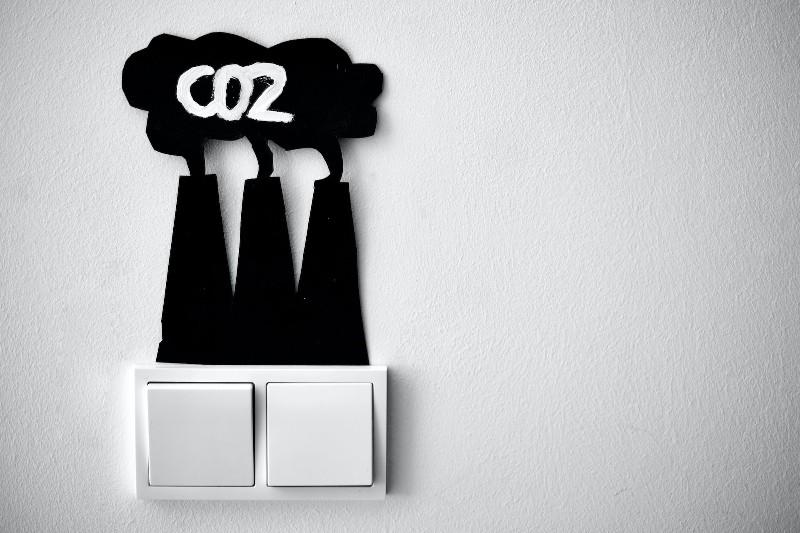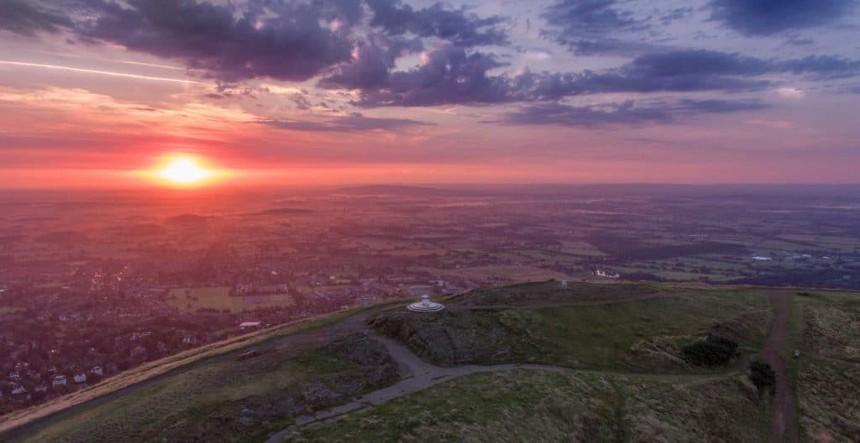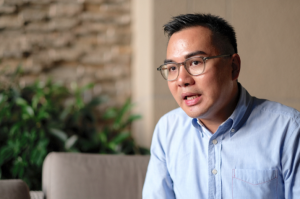
Last night in my dreams I traveled into a different world. We climbed up through a steep row of compost toilets—perfectly clean and odorless—and emerged into a strange-looking cityscape. We began to meet the locals; they were hurt by firm handshakes and preferred a very gentle touch, and every so often they all huddled together and placed their hands on top of each other in small stacks, as a way of connecting and communing.
The best part was the T-shirt ritual. A group of people were wearing ivory-colored T-shirts with the name of their city and country of origin emblazoned in thick, black lettering: “Marseille, France” or “San José, Costa Rica.” In a kind of symbolic display, they arranged themselves into a row and the black letters on their T-shirts self-ignited and burned perfectly away, leaving similar patchworks of off-white material.
As COP27, the climate conference for world leaders held in Egypt, gets underway this week, the conference and the climate emergency have been in the news—or at least in the left-leaning newspaper I read online. There have been reports on the COP process itself, such as the incredulity expressed by a Spanish minister at the fact that the British prime minister had tried to weasel his way out of even attending the conference. There have also been articles that were clotted with statistics: carbon emissions need to fall by half by 2030 if we are to have any hope of meeting the target of keeping the average temperature rise under 1.5°C. Of course, global carbon emissions are still rising. I find myself skimming media articles, which mostly confirm what I already know: that things are awful, that things are going to become worse, and that the governments of the world are unlikely to save us.
Others might disagree with my crude analysis and pessimistic outlook. I keep thinking about an article I read recently. It was drawn from one of those setups in which the newspaper matches a pair of people who would not normally spend time together—a vegan and a butcher, for example, or someone who opposed Brexit and a Brexit supporter. The two are sent to dinner together, where they can discuss their different points of view and hopefully find some common ground. In this piece, the Conservatives voter stated that politicians had children and grandchildren, and for this reason he trusted them not to allow the world to descend into climate chaos. His companion diner shared the same view as me: they are already allowing it. And they are not only allowing it, they are driving the bus as it careens toward the cliff edge. We are all on this bus, including our own and their children.
I can’t stop thinking about the burning words on those T-shirts in my dream. I think about all the different ways we separate ourselves: as belonging to different cities and countries, and also through our politics, through social class, through our philosophies and beliefs, and through our hopes and aspirations. We see so much difference when we look around us—and of course, we are different—so it’s important to prize discernment and to make judgements about which philosophies cause more or less harm, and which political systems lead to more or less inequality and oppression. Yet, despite all these differences, we are all citizens of dear Earth. We are all on the same bus as it hurtles toward the chasm. And we need to find ways of working with each other rather than against each other. We need to find ways of sitting down at the dinner table and having conversations. Maybe I’m wrong about what the politicians of the world will do when they’re up against a wall? I’m willing to listen. My ideas will only take us part of the way. When we come together with strangers and become one family, we are stronger.
I spoke recently on our local radio station about COP27. I was reluctant to accept the invitation as I don’t feel very hopeful about the outcome of the conference—much like Greta Thunberg who, despite receiving an invitation, is saving herself a trip. What do I have to say? How can I bring people a glimmer of hope amid the darkness of our collective greed, hate, and delusion?

George Fox, who founded the Quaker movement in the 1600s, provides me with my answer. This is what he saw:
I saw also that there was an ocean of darkness and death, but an infinite ocean of light and love, which flowed over the ocean of darkness.
(Quaker Faith & Practice)
Things are awful, things are getting worse, yet there is an ocean of light and love. My practice as a Buddhist shows me this. When I pay close attention to human beings and to their suffering, I am shown the truth of this. I can imagine this ocean flowing over us all, even those self-seeking representatives of immense power and wealth at COP27. There is light deep inside them too.
I still think COP27 will be a washout, although I would be delighted to be proven wrong. In the meantime, I will go to protest in our local city next weekend, and sit with our local Extinction Rebellion group in vigil for the Earth tomorrow. I will continue to enjoy the shockingly beautiful valley, blessed with November sunlight, that stretches out below the temple. I will witness the suffering of the Earth as best I can. I will try to be kind to myself and to others. I will remember that, underneath the words we write on our T-shirts, we are all beautiful bones.
See more
A gathered people (Quaker Faith & Practice)
Related features from BDG
Soup and a Broken Heart
Buddhist Voices in the Climate Crisis: Welcome to the Anthropocene
The Beauty of Despair
Proud to Be a Human Being? Active Hope during COP26
Wait: A Love Letter to Those in Despair – An Interview with Buddhist Teacher and Author Cuong Lu
Buddhistdoor View: Hope, Now and in the Future: A Buddhist Look at Doomerism and Longtermism
Buddhistdoor View: Seizing the Moment at COP26
Buddhistdoor View: The UN and Buddhist NGOs—Untested Partnerships











